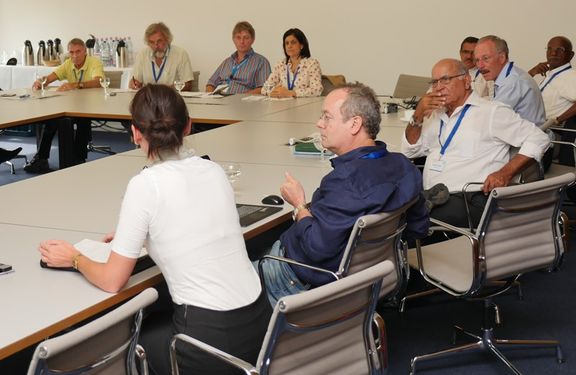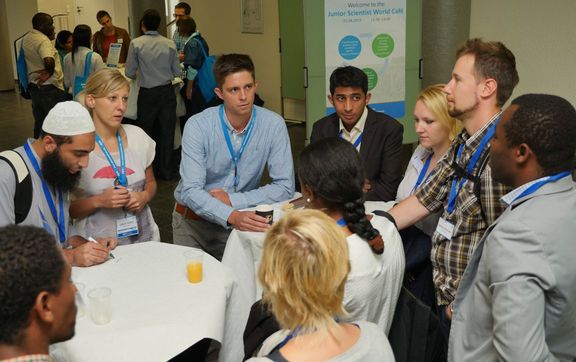Latest research developments for teaching and knowledge transfer
The Working Groups of DPG
The working groups represent the most important level of work within the DPG (German Physical Society). They are an important component of professional interaction and a starting point for many activities.
At the working group meetings, research results and practical solutions are presented and corresponding topics are discussed. For specialized subjects, project groups have formed within certain working groups. The collaboration among professionals from different fields and the experience of participating practitioners lead to problem-oriented and practical outcomes. Many of these working groups have existed for over 20 years and generally meet annually; some have a biennial schedule. The number of participants varies depending on the working group's subject area, ranging from 20 to over 100. The event dates and locations are announced on the DPG website.
The working group meetings create the scientific basis for:
- Sustainable production of food (consumables, utilities, energy crops)
- Preservation of the quality of life in the immediate human environment, such as interior greening, urban public green spaces, allotments, leisure and sports facilities, or forests
- Local climate and environmental protection, particulate matter reduction, species preservation, and biodiversity
- Allergy reduction, for instance, through regulatory strategies for ragweed, grass pollen, or combating allergenic insects like the oak processionary moth, gold tail moth, etc.
- Scientific integration among universities, colleges, associations, and schools
- Considering social aspects in agricultural production.
The work of these working groups directly reflects the societal benefit of the DPG. Participation in the DPG's working groups is open to all interested individuals, including non-members, and is free of charge. We would be delighted if participants in the working groups could develop an interest in the DPG and membership. We encourage doctoral candidates to engage in the scientific forum and discuss their results, even if preliminary, with colleagues in the working groups. All participants are invited to provide their scientific contributions to the heads of the working groups as abstracts. This is the way we can showcase the activities of the working groups externally and promote participation.

The thematic focuses within the working groups encompass the entire spectrum of Integrated Pest Management, including plant protection within organic farming
- Prevention and/or control of harmful organisms through the protection and promotion of important beneficial organisms, crop rotation; application of suitable cultivation methods, use of resistant/tolerant varieties, implementation of balanced fertilization, liming, irrigation/drainage practices, as well as hygiene measures for machinery and equipment.
- Methods and tools for monitoring causes of damage, as well as systems for scientifically-based warnings, forecasts, and early diagnoses.
- Threshold values as components of decision-making.
- Effectiveness of plant protection strategies using sustainable biological, physical, and other non-chemical methods.
- Applicability of plant protection products that are specific to target species and have minimal impact on human health, non-target organisms, and the environment.
- Reduction of the amount of plant protection products through reduced application frequency or partial area application, precision applications, modern application techniques.
- Resistance monitoring and avoidance strategies.
- Records of pesticide applications and the success of applied plant protection measures, audits, and certifications.
- Economic relevance of control concepts.
- Planning, methodology, and evaluation of experiments.
- Biology of host-parasite relationships at physiological, biochemical, and molecular levels, identification of molecular targets for combating phytopathogenic organisms.
- Symptoms and diagnosis of causes of damage, including germ inhibition, on all crops.
- Specific aspects of pests (weeds, vertebrates, nematodes, fungi, bacteria, viruses).
- Specific aspects of causes of damage in urban areas, home gardens, forestry, specialty crops, storage protection, under glass cultivation, and open-field agriculture.
- Aspects of biodiversity and climate change adaptation.
- Population and dispersion dynamics, epidemiology of pest populations, including vectors and new pests, and international aspects.
- Biological pest control (e.g., beneficial arthropods and entomopathogenic nematodes, microorganisms).
